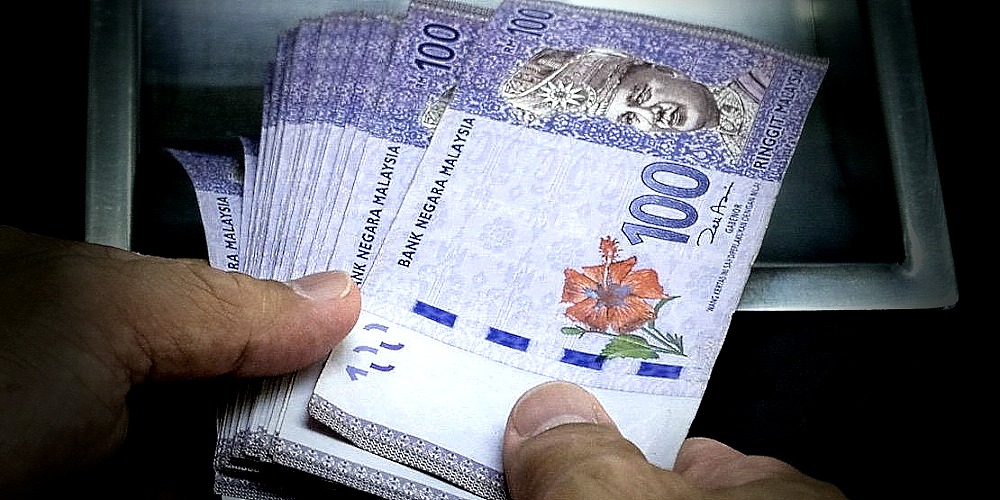Once we have the favorable environment, the investors will naturally flock in, and the local currency will receive a powerful boost!
The ringgit has been traded lower against major world currencies of late, and has dropped to a low of RM4.62 to the dollar.
Bank Negara said in a statement last Friday that the weak ringgit should not be blamed on the country’s economic weakness, but mainly due to external factors such as the Fed’s continued rate hikes to stem inflation and the stalemate in the US debt ceiling negotiations sending world currencies lower.
The thing is, even though the debt ceiling impasse seems to have defused for now, the ringgit remained anemic in Monday’s afternoon trade. This is as if to illustrate the point that the aforementioned are not absolute factors that could have contributed to ringgit’s lethargic performance.
Bank Negara also said we should not be too obsessed with only ringgit’s exchange rate against the greenback but should also assess the local currency’s performance vis-à-vis the currencies of our major trading partners.
And the fact is, ringgit’s performance against other regional currencies is equally pathetic.
The local unit has also trended lower against Singapore dollar (3.42), Chinese yuan (1.536), Hong Kong dollar (1.702), New Taiwan dollar (6.66) and Thai baht (7.562), among others.
As the ringgit has been trending south since 2015, what can Bank Negara explain after all these eight long years of weakness?
The central bank says the country’s economic growth could be boosted to 4-5% with some of the major national infrastructure projects now under way, such as the ECRL, LRT3 and the Pan Borneo Highway, but we don’t think such projects would do much to lift the ringgit from rock bottom.
Although the government has implemented numerous large public infrastructure projects to spearhead private investments, the ringgit’s long-term downtrend has remained largely unchanged. As such, new strategies will have to be conceived.
Deputy finance minister Ahmad Maslan said Bank Negara was looking for new solutions to address this problem, but what solutions? We have yet to see any at this moment!

Instead, the minister appeared to have defended the ringgit’s weakness, saying its record low exchange rate against the Singapore dollar is a boost to Malaysians working across the Causeway while making the country more attractive to Singapore tourists.
He also argued that weak ringgit augurs well for our exports!
Such an attitude is unbelievably passive. Before we have found any workable solution to check the downward trend of ringgit, we have already found dozens of excuses to keep the ringgit continuously low.
But, does a weak ringgit bolster our export sector? Not necessarily! So long as the raw materials and equipment for our exported products still have to rely on imports, how are local manufacturers going to profit from the favorable exchange rate?
Take the textile industry for instance, all our cotton, dyes and equipment will have to be imported, and the local operators can only rake in the “processing” profits and not bigger gains from the exchange rate.
Notably, the spiraling inflation has remarkably dampened consumer sentiment in the West. Sooner or later the sale of non-essentials will hit a snag. Consequently, we need to adopt a more cautious stance in global economic outlook.
A sliding ringgit is unfavorable to the import sector, sending goods prices through the roof.
Bank Negara hiked the OPR by another 25 basis points on May 3. Governor Nor Shamsiah Mohd Yunus said the decision to raise the interest rate had been thoroughly considered as a “pre-emptive” to bring down the inflation rate.
But the thing is, the “pre-emptive” has failed to take off, as Malaysians have been struggling under smothering inflationary pressure for the whole year.
The Federal Reserve started raising the US interest rates beginning last May, but only managed to bring prices somewhat under control after the rate was raised above 4%.
So, do you think the quarter percentage-point hike by Bank Negara would work miracles?
Perhaps we can take cue from the experiences of our neighbor Singapore. We will only be able to woo investors and high-caliber migrants by way of strengthening our forte, providing a lucrative and highly efficient investment environment backed by a clean, transparent and stable government.
Once we have the favorable environment, the investors will naturally flock in, and the local currency will receive a powerful boost!
ADVERTISEMENT
ADVERTISEMENT


































